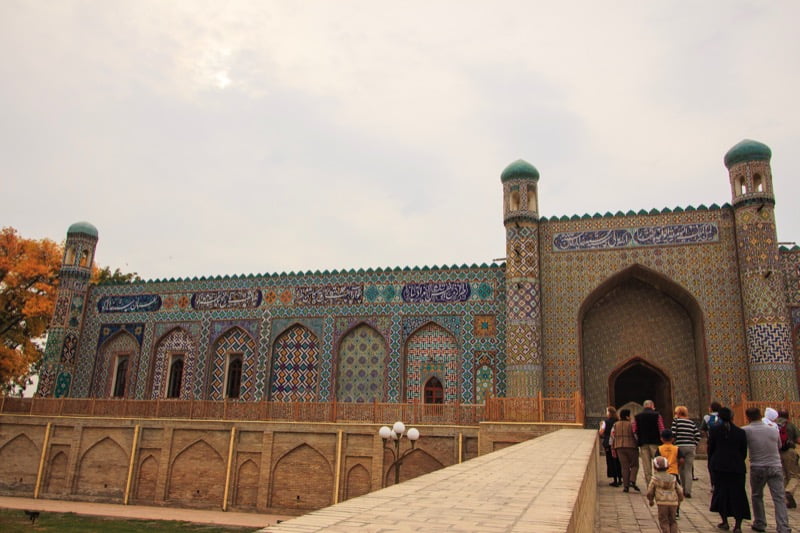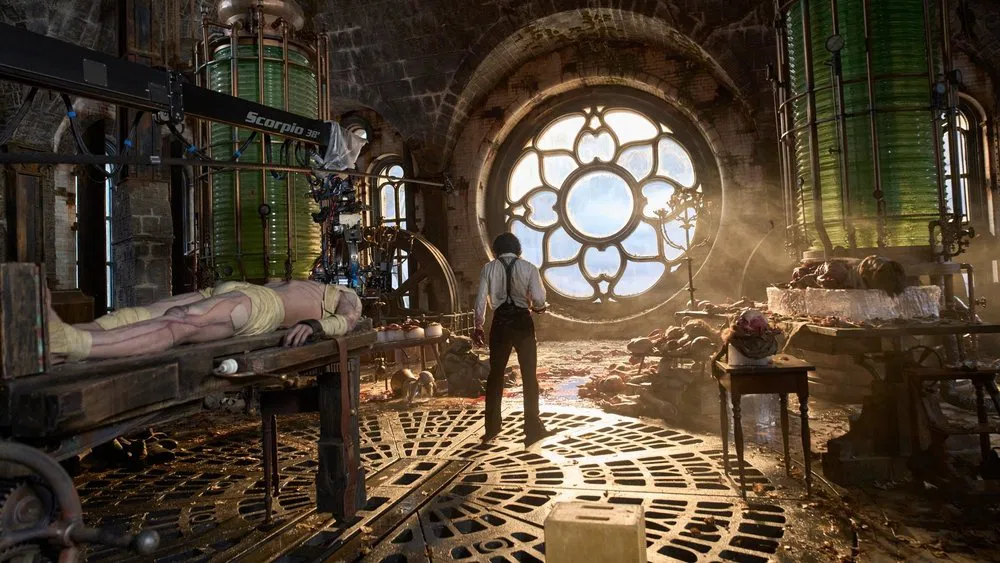
The region’s cradle of culture for more than two millennia, Uzbekistan is the proud home to a spellbinding arsenal of architecture and ancient cities, all deeply infused with the bloody, fascinating history of the Silk Road. In terms of sights alone, Uzbekistan is Central Asia's biggest draw and most impressive showstopper.
Margilan was a major Silk Road stop by the 9th century, but local legends proclaim its history dates back to the time of Alexander the Great. Like much of the valley, the city is also known as a traditional stronghold of Islam. In the 19th century, Margilan had a dozen madrassahs and over 200 mosques, most of which were destroyed by the Russians in the late 19th century.
Modern-day Margilan has roads and avenues lined with lush mulberries, and is famous for its beautiful silk textiles, still crafted by hand using traditional techniques.
One of the best silk workshops in the city is the Yodgorlik Silk Factory, which became operational in 1972 and is one of the few places in Central Asia where you can witness the entire process of making silk from A to Z.
Yodgorlik uses natural dyes to produce stunning pieces using traditional Uzbek ikat designs. Silkworms are raised here on mulberry leaves and the cocoons are unraveled to yield the raw material. Several different classes of fabric are produced, from the pure silk khan atlas to cotton/silk blends called adras.
A mere one-hour excursion will take you through the traditional methods of silk production, from the unwinding and steaming of the cocoons to the dyeing and weaving process. After the tour, you can shop for some of their products right at the workshop where local women hand-weave colorful scarves and textiles.
The Palace of Khudayar Khan was built between 1863-1873. At the time of its construction it was one of the most luxurious palaces in Central Asia. Only 27 of the original 113 rooms have survived around six beautifully restored courtyards. Today the former palace is the Kokand Regional Studies Museum. It houses numerous fine examples of the traditional ganche plasterwork that the city is famed for.
Tour the home and studio of one of Chust’s master blacksmiths, Umarov Hasan, who produces traditional Uzbek knives known as pichoq. Originally, pichoq had a more practical military purpose, but their display of fine craftsmanship and materials eventually turned them into a coveted status symbol in medieval Central Asia.
In the old days, these knives were often used as protective amulets to repel misfortune and illnesses, and shield the bearer and his family from evil spirits. Today, many older men can be seen carrying pichoq like a pocket knife to use for slicing melons and fruits while traveling. When properly kept and sharpened, these knives can last a lifetime.
The blades are made of stainless steel with the ends characteristically curled into a tip, and are typically carved or stamped with an embossed star pattern and the name “Chust” to indicate their place of origin. The handles are often made from wood, bone, or deer horn, and engraved and inlaid with stone or mother-of-pearl. Sometimes the knives come in a decorative leather sheath or hand-carved wooden box.
Uzbekistan’s fourth-largest city, Andijan is set among rolling hills on the eastern end of the Fergana Valley. An important Silk Road city, Andijan was first mentioned in chronicles in the 9th century and was capital of the Fergana Valley for three centuries. It was the birthplace of revered poet and statesman Muhammed Babur, who founded the Mughal Empire in northern India.
Aksikenth Fortress Looking out over the confluence of the Syr Darya and Kasansai rivers, Aksikenth Fortress may have been originally built in the 3rd century BC. By the 8th-9th centuries, the town had grown into an important trade center encircled with a five-gated wall. Today, the remains of Aksikenth look more like natural rock formations than a citadel, but here and there, bricks can be seen emerging from the sandstone.
By Sher Karimov





